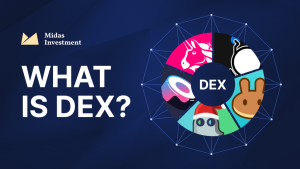Advantages of a Decentralized Trading Platform
Decentralized Trading Platform
A decentralized exchange aims to embrace the principles of “trustlessness” and privacy. This is made possible by the fact that tokens remain in the hands of their owners until they are traded. Although some find this reassuring from a security perspective, other users find it threatening and intimidating. Regardless of the individual’s perspective, DEX proponents generally agree that ownership risks are necessary to achieve true decentralization.
Decentralized trading platform works by eliminating the need for a centralized entity to oversee trades. It works with a peer-to-peer model, which means that buyers and sellers can interact without any third-party. It is also usually non-custodial, which means that users retain control of their private keys, which allow them to access their cryptocurrencies. In addition, users don’t need to submit any personal information to access the cryptocurrency.
As for trading, decentralized exchanges offer a number of advantages. They reduce counterparty risk and transaction fees. They also unlock access to more risky cryptocurrencies. As such, their adoption and usage may be huge. Let’s take a closer look. These are some of the most important advantages of decentralized exchanges. If the concept of decentralization is well-received, they could be the key to cryptocurrency adoption.

Advantages of a Decentralized Trading Platform
In addition to allowing decentralized trading, decentralized exchanges also offer other benefits. Instead of a central authority, users are free to sign in anonymously. This allows users to access tools that they wouldn’t otherwise be able to access. They’ll pay gas fees to confirm trades through Blockchain. Lastly, decentralized exchanges are highly secure. Unlike centralized exchanges, they also require a higher level of responsibility.
The major advantages of a decentralized exchange include lower counterparty risk, lower transaction fees, and a wider range of trading pairs. The decentralized exchange also has the potential to unlock riskier cryptocurrencies and open the door to more traders. If these benefits are properly incorporated, DEXs could experience tremendous growth in adoption, usage, and development. A centralized exchange is still not the best choice for every investor, but for the long-term, it may be the best option.
Despite the benefits of decentralized exchanges, they are not without their drawbacks. While centralized exchanges have the advantage of lower costs and higher liquidity, their decentralized counterparts can be more expensive and require more infrastructure. A decentralized exchange will have a lower cost of electricity. So, if you’re in the market to buy or sell a cryptocurrency, make sure to check out DEXs before you invest in them.
A decentralized exchange (DEX) is an online platform for traders to swap tokens. Unlike a centralized exchange, DEXs don’t have a centralized trading party. They execute orders directly on the blockchain. Tokens on DEXs don’t need a central trading party. They are executed on-chain and are available for traders. The Uniswap uses a governance token, UNI, to reward users and make decisions on the platform.